| Main | Topics and categories | Tasks and projects |
The Politics portal
Politics (from Ancient Greek πολιτικά (politiká) 'affairs of the cities') is the set of activities that are associated with making decisions in groups, or other forms of power relations among individuals, such as the distribution of resources or status. The branch of social science that studies politics and government is referred to as political science.
It may be used positively in the context of a "political solution" which is compromising and non-violent, or descriptively as "the art or science of government", but also often carries a negative connotation. The concept has been defined in various ways, and different approaches have fundamentally differing views on whether it should be used extensively or in a limited way, empirically or normatively, and on whether conflict or co-operation is more essential to it.
A variety of methods are deployed in politics, which include promoting one's own political views among people, negotiation with other political subjects, making laws, and exercising internal and external force, including warfare against adversaries. Politics is exercised on a wide range of social levels, from clans and tribes of traditional societies, through modern local governments, companies and institutions up to sovereign states, to the international level.
In modern nation states, people often form political parties to represent their ideas. Members of a party often agree to take the same position on many issues and agree to support the same changes to law and the same leaders. An election is usually a competition between different parties.
A political system is a framework which defines acceptable political methods within a society. The history of political thought can be traced back to early antiquity, with seminal works such as Plato's Republic, Aristotle's Politics, Confucius's political manuscripts and Chanakya's Arthashastra. (Full article...)
Selected article
The Cultural Revolution Group (CRG) (Chinese: 中央文革小组) was formed in May 1966 as a replacement organisation to the Central Committee Secretariat and the "Five Man Group", and was initially directly responsible to the Standing Committee of the Politburo. It consisted mainly of radical supporters of Mao, including Chen Boda, the Chairman's wife Jiang Qing, Kang Sheng, Yao Wenyuan, Zhang Chunqiao, Wang Li and Xie Fuzhi. The CRG had a central role to play in the Cultural Revolution's first few years, and for a period of time the group replaced the Politburo Standing Committee (PSC) as the de facto top power organ of China. Its members were also involved in many of the major events of the Cultural Revolution.
Featured picture
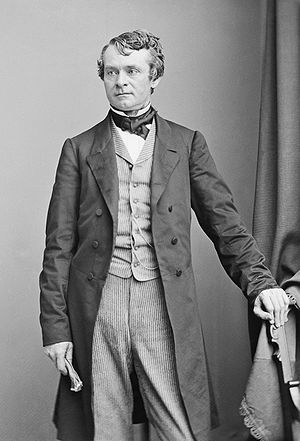
Andrew Gregg Curtin (1817–1894) was a U.S. lawyer and politician. He served as the 15th Governor of Pennsylvania during the American Civil War. During the Civil War, Curtin organized the Pennsylvania reserves into combat units, and oversaw the construction of the first Union military camp for training militia. After the Battle of Gettysburg, Governor Curtin was the principal force behind the establishment of the National Cemetery there. After serving two terms as governor, Curtin was appointed ambassador to Russia by Ulysses S. Grant, and he later served in the House of Representatives from 1881 until 1887.
Selected quote
Selected biography
Ban Ki-moon (born 13 June 1944) is a South Korean diplomat and the former Secretary-General of the United Nations. Before becoming Secretary-General, Ban was a career diplomat in South Korea's Ministry of Foreign Affairs and in the United Nations. He entered diplomatic service the year he graduated college, accepting his first post in New Delhi. In the foreign ministry he established a reputation for modesty and competence. Ban was the Foreign Minister of the Republic of Korea from January 2004 to November 2006. In February 2006 he began to campaign for the office of Secretary-General. Ban was initially considered to be a long shot for the office. As Foreign Minister of South Korea, however, he was able to travel to all of the countries that were members of the United Nations Security Council, a manoeuvre that turned him into the campaign's front runner. On 13 October 2006, he was elected to be the eighth Secretary-General by the United Nations General Assembly. On 1 January 2007, he succeeded Kofi Annan, and passed several major reforms regarding peacekeeping and UN employment practices. Diplomatically, Ban has taken particularly strong views on global warming, pressing the issue repeatedly with United States President George W. Bush, as well as Darfur, where he helped persuade Sudanese President Omar al-Bashir to allow peacekeeping troops to enter Sudan.
Did you know (auto-generated) -

- ... that Philipp Tanzer has been an army medic, artist, firefighter, hairdresser, massage therapist, festival organiser, political candidate and gay porn star?
- ... that one of the arguments made by the Simla Deputation for increasing Muslim representation in Indian politics was that they had ruled India under the Mughal Empire?
- ... that Kaczyzm is a pejorative term describing the political ideology of Polish politicians Lech and Jarosław Kaczyński and their Law and Justice party?
- ... that Jonathan Allen left journalism for politics before quitting 40 days later?
- ... that nearing the end of his tenure as mayor of Tegal, Indonesia, Adi Winarso took part in a talkshow with his former political competitors?
- ... that Aymara legislator Rafael Quispe's humorous style of political activism led one Bolivian parliamentarian to describe him as the "Chapulín Colorado" of the Legislative Assembly?
More did you know...
- ...that the phrase "lipstick on a pig" may have its origins in the 18th-century expression "A hog in armour is still but a hog"?
- ...that the Pirate Party of the United States was formed after a 2006 raid by the Swedish police on the servers of The Pirate Bay, a popular file sharing website?
- ...that Andrey Kirillovich Razumovsky, at the time Ambassador of the Russian Empire to the Austrian Empire, commissioned three string quartets from Beethoven?
- ...that politicians discuss the ways in which they and their families have suffered because of Oprahization?
- ...that Democratic and Republican plans for the 2012 United States federal budget both focus on deficit reduction, but differ in their changes to taxation, entitlement programs, and research funding?
- ...that Conservative Party candidate Bernard Trottier won a seat in the 41st Canadian Parliament by defeating the incumbent Leader of the Liberal Party of Canada in the 2011 federal election?
- ...that just before the invasion of Poland, members of the German minority from Deutscher Volksverband were trained in sabotage by the Abwehr agents arriving in Poland from Germany?
- ...that on the death of Governor George Madison, Kentucky lieutenant governor Gabriel Slaughter was refused the title of "governor" by a hostile state legislature and was referred to as "acting governor" for the duration of his three-year administration?
In this month
- June 28, 2004 - Canadian federal elections occur; the Liberal party loses its absolute majority.
News and Current events
- August 11: 4 local government areas in New South Wales, Australia locked down after COVID-19 case
- August 11: Australia: AstraZeneca vaccine access expanded by Victorian government
- August 1: Australia: Victorian lockdown lifted
- July 29: Tunisia's president dismisses prime minister, suspends parliament
- July 25: Australia: Wikinews interviews Reg Kidd, mayor of the City of Orange, about COVID-19 lockdown and local government
- July 23: South Australia enters week-long lockdown to contain COVID-19 Delta variant spread
- July 21: Technological University Dublin senior lecturer Dr Lorcan Sirr speaks to Wikinews on housing market in Ireland
- July 21: Three rural councils in New South Wales, Australia enter 7-day lockdown
- July 21: Australia: Victoria lockdown extended by a week with 85 active cases recorded
- July 15: California governor signs new state budget, eligible Californians to get stimulus payments
Topics and categories
General images
Related portals
Associated Wikimedia
The following Wikimedia Foundation sister projects provide more on this subject:
-
 Commons
Commons
Free media repository -
 Wikibooks
Wikibooks
Free textbooks and manuals -
 Wikidata
Wikidata
Free knowledge base -
 Wikinews
Wikinews
Free-content news -
 Wikiquote
Wikiquote
Collection of quotations -
 Wikisource
Wikisource
Free-content library -
 Wikiversity
Wikiversity
Free learning tools -
 Wiktionary
Wiktionary
Dictionary and thesaurus


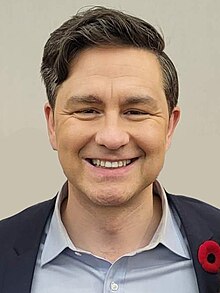








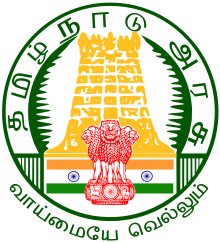
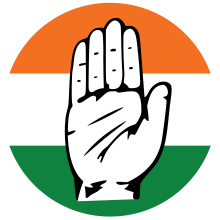
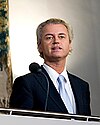








































Recent Comments